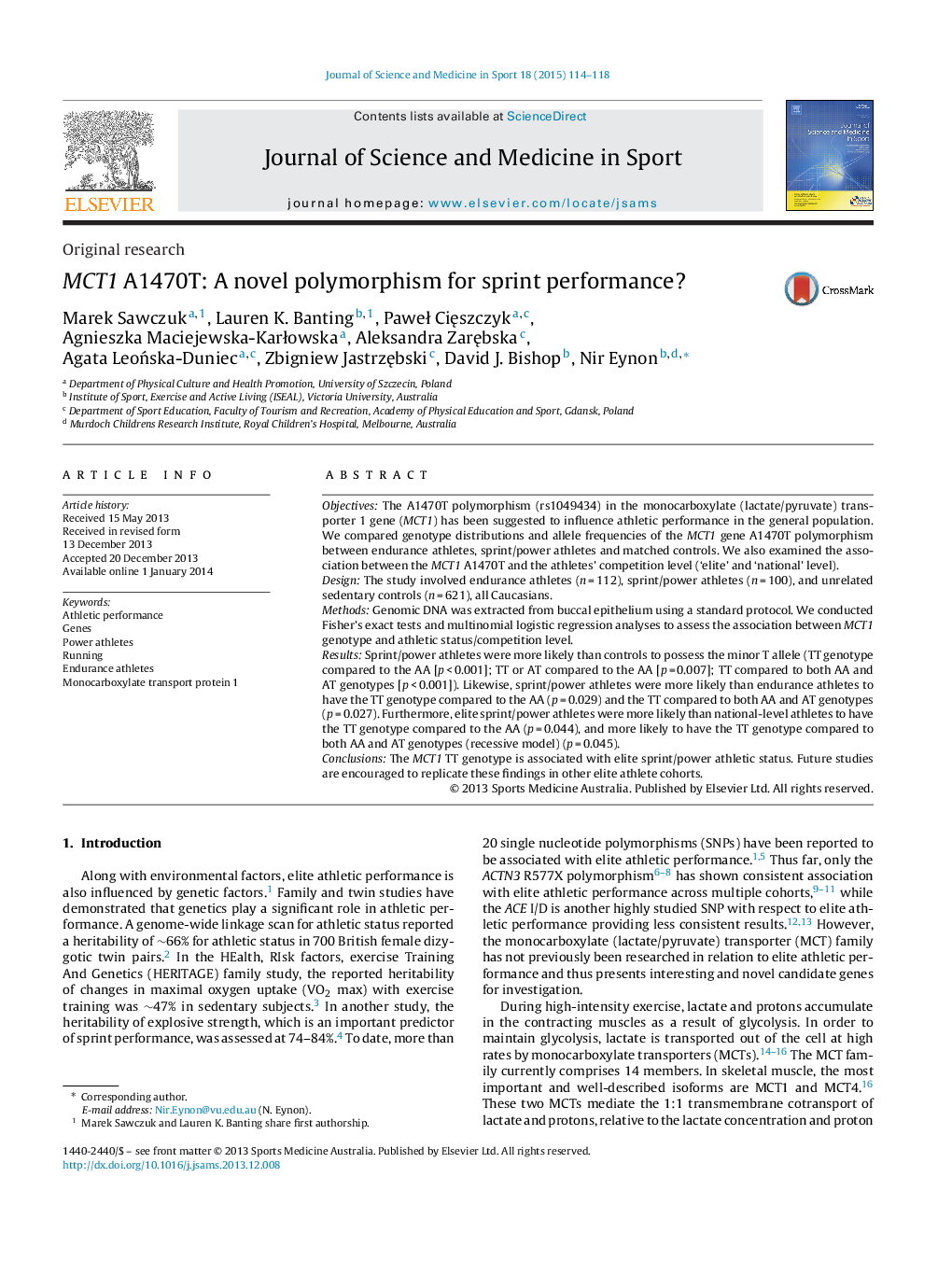| Article ID | Journal | Published Year | Pages | File Type |
|---|---|---|---|---|
| 2707616 | Journal of Science and Medicine in Sport | 2015 | 5 Pages |
ObjectivesThe A1470T polymorphism (rs1049434) in the monocarboxylate (lactate/pyruvate) transporter 1 gene (MCT1) has been suggested to influence athletic performance in the general population. We compared genotype distributions and allele frequencies of the MCT1 gene A1470T polymorphism between endurance athletes, sprint/power athletes and matched controls. We also examined the association between the MCT1 A1470T and the athletes’ competition level (‘elite’ and ‘national’ level).DesignThe study involved endurance athletes (n = 112), sprint/power athletes (n = 100), and unrelated sedentary controls (n = 621), all Caucasians.MethodsGenomic DNA was extracted from buccal epithelium using a standard protocol. We conducted Fisher's exact tests and multinomial logistic regression analyses to assess the association between MCT1 genotype and athletic status/competition level.ResultsSprint/power athletes were more likely than controls to possess the minor T allele (TT genotype compared to the AA [p < 0.001]; TT or AT compared to the AA [p = 0.007]; TT compared to both AA and AT genotypes [p < 0.001]). Likewise, sprint/power athletes were more likely than endurance athletes to have the TT genotype compared to the AA (p = 0.029) and the TT compared to both AA and AT genotypes (p = 0.027). Furthermore, elite sprint/power athletes were more likely than national-level athletes to have the TT genotype compared to the AA (p = 0.044), and more likely to have the TT genotype compared to both AA and AT genotypes (recessive model) (p = 0.045).ConclusionsThe MCT1 TT genotype is associated with elite sprint/power athletic status. Future studies are encouraged to replicate these findings in other elite athlete cohorts.
